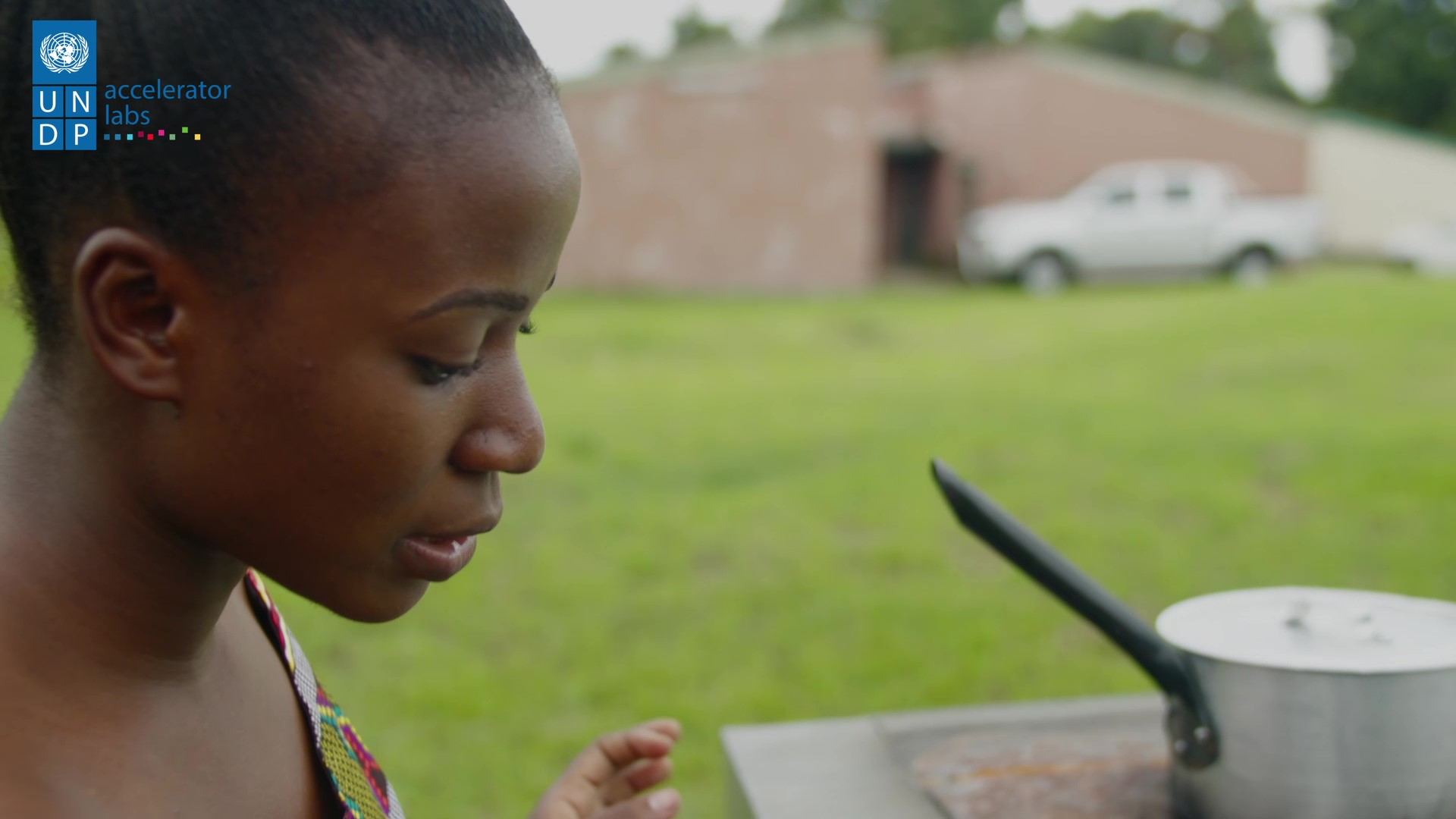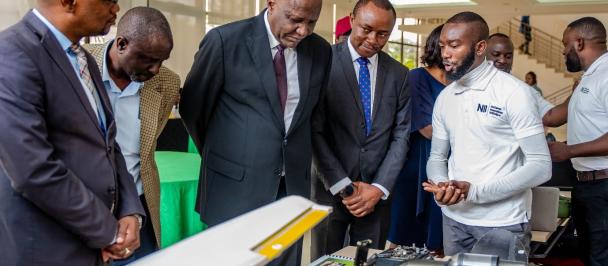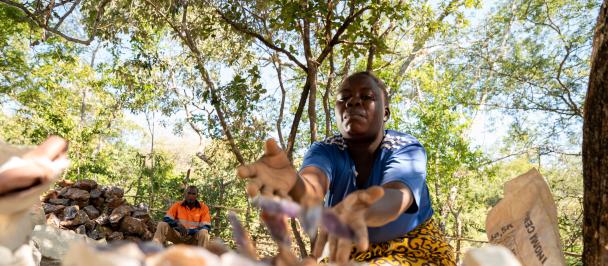Leave nothing behind; UNDP Innovator turns copper by-product into cook stove energy
June 6, 2022

Mervis Ngosa demonstrates how her cook stove, made from copper waste, works
The Zambia National Broadcasting Corporation during its Main News (4th June 2022) reported that a mother and her two month old child lost their lives whilst the woman’s husband barely survived after suffocating from carbon monoxide released by a charcoal-managed brazier left burning while they slept. The sad incident occurred in Kalikiliki, a highly populated residential area in Lusaka, where safe and clean heating and cooking solutions are elusive.
This unfortunate case is typical during the cold season currently being experienced in the country. During this season, most homes resort to home heating measures that are hazardous despite the dangers associated with them. Clearly, the reasoning behind such a decision is that charcoal is a cheaper heating and cooking solution especially for households where the main electricity gridline is not available, or the cost of electricity is beyond their pockets. Challenging situations as befalls the young Kalikiliki family are ripe grounds for solutions that promise relief and a promise of a safe living environment.
Becoming an Innovator: searching for a solution
In the district of Mansa, despite being the Provincial headquarters of Luapula province, many households heavily rely on the use of charcoal as the source of energy. Like many rural districts where electricity supply is not regular, traditional lighting and heating is the only form known in the homes despite the risk and harm to the environment as a result of deforestation. This situation is what led 28 years old innovator, Mervis Ngosa, to begin her own safari in search of safer, cleaner and cheaper cooking and heating solutions for households heavily dependent on these unsustainable heating methods.
Mervis’s recollection of how she started her innovation dates back to her hometown, “I come from Samfya then moved to live in Mansa. We used charcoal and firewood as our main sources of energy. I witnessed so many disastrous accidents associated with these energy sources that I started thinking and investigating ways of using alternative sources of energy. I discovered that copper slag can be one such alternative.”
To her delightful discovery, Mervis realised that the copper by-product or slag, is used as an abrasive tool, for road construction, and ballast. Although many have realised its use and potential, much of it is disposed in dumps or stockpiles.
She discovered that copper slag is not flammable but stores energy.
“From what we have gathered, the copper slag stove uses very little charcoal or better still can use twigs or maize husks. But what is interesting is that The exciting part is that the slag when heated, spreads the heat around the stove to make it hot for a longer period so that even after burning out, the stove remains very hot.”
From ashes to beauty: How UNDP Identified Mervis for Innovation Acceleration
It was in 2020 when the United Nations Development Programme (UNDP), National Technology Business Centre (NTBC) in collaboration with the Zambia Information and Communication Technology (ZICTA) hosted the inaugural National Innovation Initiative (NII) Fair, where Mervis participated and show-cased her innovation.
The NII is a joint initiative aimed to map out existing local innovations across Zambian communities with a view of supporting the most promising initiatives with the highest potential for social and economic impact. The Fair targets local innovators, technology-based start-ups and creative innovations that are solving societal challenges including the ones that help address the current COVID-19 pandemic.
Fifty (50) innovators from 10 provinces across the country were identified through a thorough and elaborate process of scouting, interrogating and recruiting these innovators who then participated at the Fair. Only twenty (20) of the most promising and impact driven projects were selected to receive a cash award of K50,000 to help develop their innovations. Though not among the top 20 awarded, Mervis’ innovation was not to be ignored.
“I did not win but I came out of the competition a better person. A person more determined to apply what I heard and what I needed to improve”.
Although Mervis did not win, her innovation did impress the judges and key stakeholders who requested for her participation in the Experimentation Programme aimed at testing and iterating the innovations for possible scaling up and commercialization. Under the Climate Change and Energy Experimentation Programme, which leveraged on existing projects in the areas of climate change and energy to support the NII finalists and Waste Management Innovation Challenge finalists by testing their products and improving their product design and models. The programme focuses on helping develop the commercial viability of the innovations, co-implemented with the National Institute for Scientific and Industrial Research (NISIR) and Copperbelt University (CBU). The initiative also aims at imparting technical and business development knowledge and skills in the targeted groups for the successful commercialization of their innovations. The initiative is expected to provide financial support to the best innovations in various selected categories.
Under the tutelage of the CBU, improvements were made to the design of the stove and measures put in place to cater for the safety of the stove for home use. The team are also exploring the use of briquettes to completely do away with the unsustainable use of wood or charcoal.
The slag stove by today, has now built-in all its components so that they are no longer visible; the slag and the twigs are equally hidden from the ordinary eye.

 Locations
Locations
